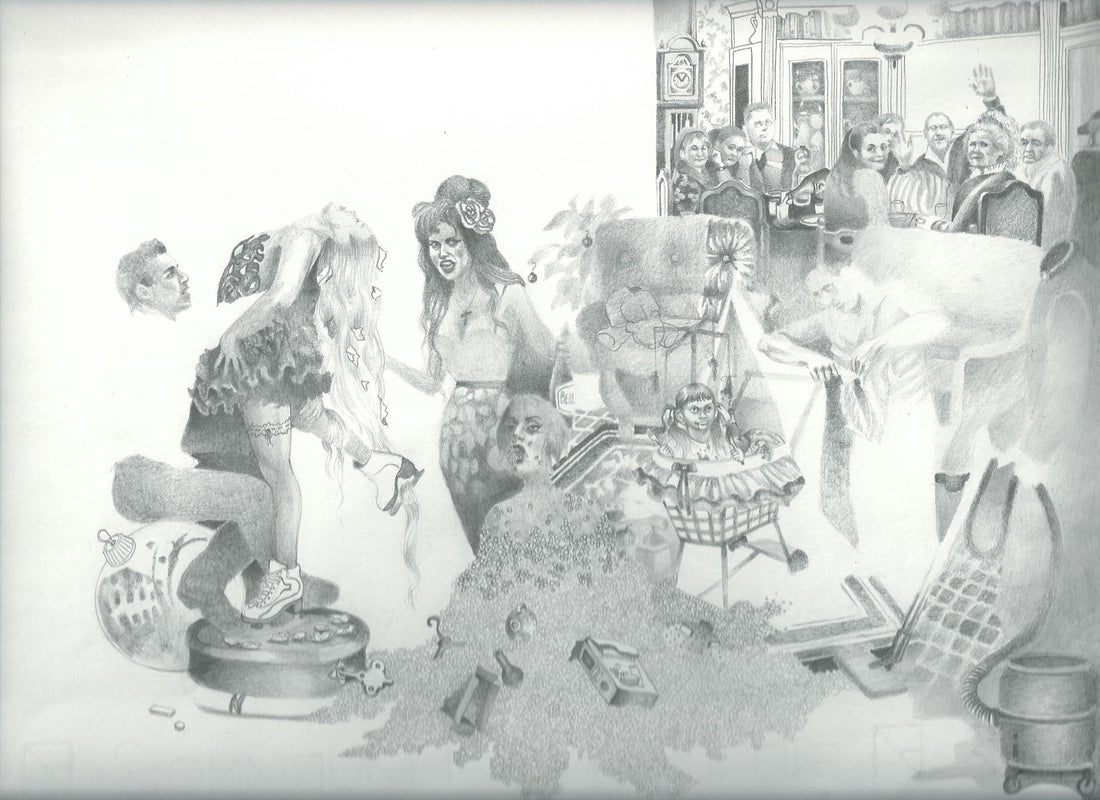Hundreds of black and white sketches
made at the bus stop, during the lunch break, in a waiting room, and in many other dead moments that
fade from memory.
I drew them on improvised supports: waste paper, pieces of newspaper, photocopy sheets.
Fragments of a year are quickly jotted down like post-it notes.










































































This collection of impressions and memories is essential to me.
That is the work through which I understand my poetry, not only in terms of content but also of support.
In 2011, I was a student at the Academy of Fine Arts, and my teachers criticized my work because I did not want to paint, create big drawings, or use good-quality paper. I experimented with different supports, which represented a note of demerit in my production. All my colleagues had painted large canvasses and used to work on expensive paper; compared to them, my work seemed to be a leftover, discarded draft.
I suffered for this; I was convinced that something was wrong. I thought I wasn’t up to the artistic path and had mistakenly chosen the Academy of Fine Arts. Inadequacy accompanied me for three years. That bad feeling was aggravated by the teacher’s conviction that my perseverance in the “mistake” was led by arrogance. So they used to blame me.
It took several years for me to think about why I couldn’t work on a large format, several years to see my work from another point of view and another perspective, to stop blaming myself, and to stop feeling inadequate. I took several years to realize how difficult it would have been for me to apply at the Academy, to go against my parents will that wanted me to have a more helpful career, to be the only person coming from a countryside working-class background in a middle-class pseudo cosmopolitan environment; to work as a bartender during the day and to study in the evening; to be a young girl in a field, such as the artistic one, which is predominantly male.
I was afraid of everything, even if I didn’t know it. I didn’t want to attract attention; I felt judged.
I had no money to waste on paper (yes, I thought that spending money on artistic material was a waste because I had no money at all); I had no space to work on a large scale because I didn’t even have a room.
But I wanted to draw; I felt this urge to create and to express my thoughts. So I did it, but in the shadow, taking up as little space as possible and spending as little money as possible. I experienced the drawing as a clandestine activity; I made it secretly, in dead moments when no one was looking at me. I made it on makeshift and copier paper, on the material I quickly found.
Now, I no longer perceive my work as a shame, as something to hide, but as the symbol of a condition that I think is much more general than my particular experience.

